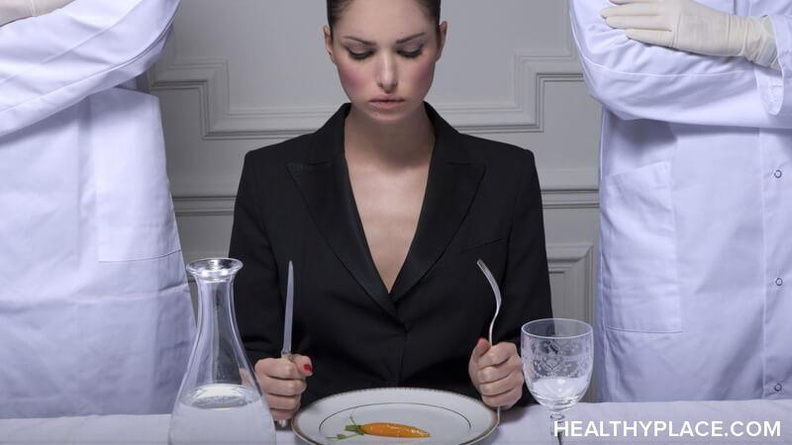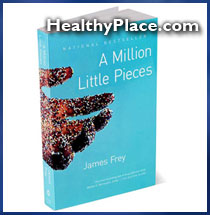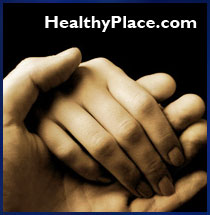
This chapter provides a very simplistic summary of three main philosophical approaches to the treatment of eating disorders. These approaches are used alone or in combination with one another according to the treating professional's knowledge and preference as well as the needs of the individual receiving care. Medical treatment and treatment with drugs that are used to affect mental functioning are both discussed in other chapters and not included here. However, it is important to note that medication, medical stabilization, and ongoing medical monitoring and treatment are necessary in conjunction with all approaches. Depending on how clinicians view the nature of eating disorders, they will most likely approach treatment from one or more of the following perspectives:
- Psychodynamic
- Cognitive behavioral
- Disease/addiction
It is important when choosing a therapist that patients and significant others understand that there are different theories and treatment approaches. Admittedly, patients may not know whether a certain theory or treatment approach is suitable for them, and they may need to rely on instinct when choosing a therapist. Many patients know when a certain approach is not appropriate for them. For example, I often have patients elect to go into individual treatment with me or choose my treatment program over others because they have previously tried and do not want a Twelve Step or addiction- based approach. Getting a referral from a trustworthy individual is one way to find an appropriate professional or treatment program.
PSYCHODYNAMIC MODEL
A psychodynamic view of behavior emphasizes internal conflicts, motives, and unconscious forces. Within the psychodynamic realm there are many theories on the development of psychological disorders in general and on the sources and origins of eating disorders in particular. Describing each psychodynamic theory and the resulting treatment approach, such as object relations or self-psychology, is beyond the scope of this book.
The common feature of all psychodynamic theories is the belief that without addressing and resolving the underlying cause for disordered behaviors, they may subside for a time but will all too often return. The early pioneering and still relevant work of Hilde Bruch on treating eating disorders made it clear that using behavior modification techniques to get people to gain weight may accomplish short-term improvement but not much in the long run. Like Bruch, therapists with a psychodynamic perspective believe that the essential treatment for full eating disorder recovery involves understanding and treating the cause, adaptive function, or purpose that the eating disorder serves. Please note that this does not necessarily mean "analysis," or going back in time to uncover past events, although some clinicians take this approach.
My own psychodynamic view holds that in human development when needs are not met, adaptive functions arise. These adaptive functions serve as substitutes for developmental deficits that protect against the resulting anger, frustration, and pain. The problem is that the adaptive functions can never be internalized. They can never fully replace what was originally needed and furthermore they have consequences that threaten long-term health and functioning. For example, an individual who never learned the ability to self-soothe may use food as a means of comfort and thus binge eat when she is upset. Binge eating will never help her internalize the ability to soothe herself and will most likely lead to negative consequences such as weight gain or social withdrawal. Understanding and working through the adaptive functions of eating disorder behaviors is important in helping patients internalize the ability to attain and maintain recovery.
In all of the psychodynamic theories, eating disorder symptoms are seen as expressions of a struggling inner self that uses the disordered eating and weight control behaviors as a way of communicating or expressing underlying issues. The symptoms are viewed as useful for the patient, and attempts to directly try to take them away are avoided. In a strict psychodynamic approach, the premise is that, when the underlying issues are able to be expressed, worked through, and resolved, the disordered eating behaviors will no longer be necessary. Chapter 5, "Eating Disorder Behaviors Are Adaptive Functions," explains this in some detail.
Psychodynamic treatment usually consists of frequent psycho-therapy sessions using interpretation and management of the transference relationship or, in other words, the patient's experience of the therapist and vice versa. Whatever the particular psychodynamic theory, the essential goal of this treatment approach is to help patients understand the connections between their pasts, their personalities, and their personal relationships and how all this relates to their eating disorders.
The problem with a solely psychodynamic approach to treating eating disorders is twofold. First, many times patients are in such a state of starvation, depression, or compulsivity that psychotherapy cannot effectively take place. Therefore, starvation, tendency toward suicide, compulsive binge eating and purging, or serious medical abnormalities may need to be addressed before psychodynamic work can be effective. Second, patients can spend years doing psychodynamic therapy gaining insight while still engaging in destructive symptomatic behaviors. To continue this kind of therapy for too long without symptom change seems unnecessary and unfair.
Psychodynamic therapy can offer a lot to eating disordered individuals and may be an important factor in treatment, but a strict psychodynamic approach alone - with no discussion of the eating- and weight-related behaviors - has not been shown to be effective in achieving high rates of full recovery. At some point, dealing directly with the disordered behaviors is important. The most well-known and studied technique or treatment approach currently used to challenge, manage, and transform specific food and weight-related behaviors is known as cognitive behavioral therapy.
COGNITIVE BEHAVIORAL MODEL
The term cognitive refers to mental perception and awareness. Cognitive distortions in the thinking of eating disordered patients that influence behavior are well recognized. A disturbed or distorted body image, paranoia about food itself being fattening, and binges being blamed on the fact that one cookie has already destroyed a perfect day of dieting are common unrealistic assumptions and distortions. Cognitive distortions are held sacred by patients who rely on them as guidelines for behavior in order to gain a sense of safety, control, identity, and containment. Cognitive distortions have to be challenged in an educational and empathetic way in order to avoid unnecessary power struggles. Patients will need to know that their behaviors are ultimately their choice but that currently they are choosing to act on false, incorrect, or misleading information and faulty assumptions.
Cognitive behavioral therapy (CBT) was originally developed in the late 1970s by Aaron Beck as a technique for treating depression. The essence of cognitive behavioral therapy is that feelings and behaviors are created by cognitions (thoughts). One is reminded of Albert Ellis and his famous Rational Emotive Therapy (RET). The clinician's job is to help individuals learn to recognize cognitive distortions and either choose not to act on them or, better still, to replace them with more realistic and positive ways of thinking. Common cognitive distortions can be put into categories such as all-or-nothing thinking, overgeneralizing, assuming, magnifying or minimizing, magical thinking, and personalizing.
Those familiar with eating disorders will recognize the same or similar cognitive distortions repeatedly being expressed by eating disordered individuals seen in treatment. Disordered eating or weight-related behaviors such as obsessive weighing, use of laxatives, restricting all sugar, and binge eating after one forbidden food item passes the lips, all arise from a set of beliefs, attitudes, and assumptions about the meaning of eating and body weight. Regard-less of theoretical orientation, most clinicians will eventually need to address and challenge their patients' distorted attitudes and beliefs in order to interrupt the behaviors that flow from them. If not addressed, the distortions and symptomatic behaviors are likely to persist or return.
FUNCTIONS THAT COGNITIVE DISTORTIONS SERVE
1. They provide a sense of safety and control.
Example: All-or-nothing thinking provides a strict system of rules for an individual to follow when she has no self-trust in making decisions. Karen, a twenty-two-year-old bulimic, does not know how much fat she can eat without gaining weight so she makes a simple rule and allows herself none. If she does happen to eat something forbidden she binges on as many fatty foods as she can get because, as she puts it, "As long as I have blown it I might as well go the whole way and have all those foods I don't allow myself to eat."
2. They reinforce the eating disorder as a part of the individual's identity.
Example: Eating, exercise, and weight become factors that make the person feel special and unique. Keri, a twenty-one-year-old bulimic, told me, "I don't know who I will be without this illness," and Jenny, a fifteen-year-old anorexic, said, "I am the person known for not eating."
3. They enable patients to replace reality with a system that supports their behaviors.
Example: Eating disorder patients use their rules and beliefs rather than reality to guide their behaviors. Magically thinking that being thin will solve all of one's problems or minimizing the significance of weighing as little as 79 pounds are ways that patients mentally allow themselves to continue their behavior. As long as John holds the belief that, "If I stop taking laxatives I will get fat," it is difficult to get him to discontinue his behavior.
4. They help provide an explanation or justification of behaviors to other people.
Example: Cognitive distortions help people explain or justify their behavior to others. Stacey, a forty-five-year-old anorexic, would always complain, "If I eat more I feel bloated and miserable." Barbara, a binge eater, would restrict eating sweets only to end up bingeing on them later, justifying this by telling everyone, "I'm allergic to sugar." Both of these claims are more difficult to argue with than "I'm afraid to eat more food" or "I set myself up to binge because I don't allow myself to eat sugar." Patients will justify their continued starving or purging by minimizing negative lab test results, hair loss, and even poor bone density scans. Magical thinking allows patients to believe and try to convince others to believe that electrolyte problems, heart failure, and death are things that happen to other people who are worse off.
Treating patients with cognitive behavioral therapy is considered by many top professionals in the field of eating disorders to be the "gold standard" of treatment, especially for bulimia nervosa. At the April 1996 International Eating Disorder Conference, several researchers such as Christopher Fairburn and Tim Walsh presented findings reiterating that cognitive behavioral therapy combined with medication produces better results than psychodynamic therapy combined with medication, either of these modalities combined with a placebo, or medication alone.
Even though these findings are promising, the researchers themselves concede that the results show only that in these studies, one approach works better than others tried, and not that we have found a form of treatment that will help most patients. For information on this approach, see Overcoming Eating Disorders Client Handbook and Overcoming Eating Disorders Therapist's Guide by W. Agras and R. Apple (1997). Many patients are not helped by the cognitive behavioral approach, and we are not sure which ones will be. More research needs to be done. A prudent course of action in treating eating disordered patients would be to utilize cognitive behavioral therapy at least as a part of an integrated multidimensional approach.
DISEASE/ADDICTION MODEL
The disease or addiction model of treatment for eating disorders, sometimes referred to as the abstinence model, was originally taken from the disease model of alcoholism. Alcoholism is considered an addiction, and alcoholics are considered powerless over alcohol because they have a disease that causes their bodies to react in an abnormal and addictive way to the consumption of alcohol. The Twelve Step program of Alcoholics Anonymous (AA) was designed to treat the disease of alcoholism based on this principle. When this model was applied to eating disorders, and Overeater's Anonymous (OA) was originated, the word alcohol was substituted with the word food in the Twelve Step OA literature and at Twelve Step OA meetings. The basic OA text explains, "The OA recovery program is identical with that of Alcoholics Anonymous.
We use AA's twelve steps and twelve traditions, changing only the words alcohol and alcoholic to food and compulsive overeater (Overeaters Anonymous 1980). In this model, food is often referred to as a drug over which those with eating disorders are powerless. The Twelve Step program of Overeaters Anonymous was originally designed to help people who felt out of control with their overconsumption of food: "The major objective of the program is to achieve abstinence, defined as freedom from compulsive overeating" (Malenbaum et al. 1988). The original treatment approach involved abstaining from certain foods considered binge foods or addictive foods, namely sugar and white flour, and following the Twelve Steps of OA which are as follows:
TWELVE STEPS OF OA
Step I: We admitted we were powerless over food - that our lives had become unmanageable.
Step II: Came to believe that a Power greater than ourselves could restore us to sanity.
Step III: Made a decision to turn our will and our lives over to the care of God as we understood Him.
Step IV: Made a searching and fearless moral inventory of ourselves.
Step V: Admitted to God, to ourselves, and to another human being the exact nature of our wrongs.
Step VI: Were entirely ready to have God remove all these defects of character.
Step VII: Humbly asked Him to remove our shortcomings.
Step VIII: Made a list of all persons we had harmed, and became willing to make amends to them all.
Step IX: Made direct amends to such people wherever possible, except when to do so would injure them or others.
Step X: Continued to take personal inventory and when we were wrong, promptly admitted it.
Step XI: Sought through prayer and meditation to improve our conscious contact with God as we understood Him, praying only for knowledge of His will for us and the power to carry that out.
Step XII: Having had a spiritual awakening as the result of these steps, we tried to carry this message to compulsive overeaters and to practice these principles in all our affairs.
The addiction analogy and abstinence approach make some sense in relationship to its original application to compulsive overeating. It was reasoned that if addiction to alcohol causes binge drinking, then addiction to certain foods could cause binge eating; therefore, abstinence from those foods should be the goal. This analogy and supposition is debatable. To this day we have found no scientific proof of a person being addicted to a certain food, much less masses of people to the same food. Nor has there been any proof that an addiction or Twelve Step approach is successful in treating eating disorders. The analogy that followed - that compulsive overeating was fundamentally the same illness as bulimia nervosa and anorexia nervosa and thus all were addictions - made a leap based on faith, or hope, or desperation.
In an effort to find a way to treat the growing number and severity of eating disorder cases, the OA approach began to be loosely applied to all forms of eating disorders. The use of the addiction model was readily adopted due to the lack of guidelines for treatment and the similarities that eating disorder symptoms seemed to have with other addictions (Hat-sukami 1982). Twelve Step recovery programs sprung up everywhere as a model that could be immediately adapted for use with eating disorder "addictions." This was happening even though one of OA's own pamphlets, entitled "Questions & Answers," tried to clarify that "OA publishes literature about its program and compulsive overeating, not about specific eating disorders such as bulimia and anorexia" (Overeaters Anonymous 1979).
The American Psychiatric Association (APA) recognized a problem with Twelve Step treatment for anorexia nervosa and treatment for bulimia nervosa, in their treatment guidelines established in February 1993. In summary, the APA's position is that Twelve Step based programs are not recommended as the sole treatment approach for anorexia nervosa or the initial sole approach for bulimia nervosa. The guidelines suggest that for bulimia nervosa Twelve Step programs such as OA may be helpful as an adjunct to other treatment and for subsequent relapse prevention.
In determining these guidelines the members of the APA expressed concerns that due to "the great variability of knowledge, attitudes, beliefs, and practices from chapter to chapter and from sponsor to sponsor regarding eating disorders and their medical and psychotherapeutic treatment and because of the great variability of patients' personality structures, clinical conditions, and susceptibility to potentially counter therapeutic practices, clinicians should carefully monitor patients' experiences with Twelve Step programs."
Some clinicians feel strongly that eating disorders are addictions; for example, according to Kay Sheppard, in her 1989 book, Food Addiction, The Body Knows, "the signs and symptoms of bulimia nervosa are the same as those of food addiction." Others acknowledge that although there is an attractiveness to this analogy, there are many potential problems in assuming that eating disorders are addictions. In the International Journal of Eating Disorders, Walter Vandereycken, M.D., a leading figure in the field of eating disorders from Belgium, wrote, "The interpretative 'translating' of bulimia into a known disorder supplies both the patient and therapist with a reassuring point of reference. . . . Although the use of a common language can be a basic factor as to further therapeutic cooperation, it may be at the same time a diagnostic trap by which some more essential, challenging, or threatening elements of the problem (and hence the related treatment) are avoided." What did Vandereycken mean by a "diagnostic trap"? What essential or challenging elements might be avoided?
One of the criticisms of the addiction or disease model is the idea that people can never be recovered. Eating disorders are thought to be lifelong diseases that can be controlled into a state of remission by working through the Twelve Steps and maintaining abstinence on a daily basis. According to this viewpoint, eating disordered individuals can be "in recovery" or "recovering" but never "recovered." If the symptoms go away, the person is only in abstinence or remission but still has the disease.
A "recovering" bulimic is supposed to continue referring to herself as a bulimic and continue attending Twelve Step meetings indefinitely with the goal of remaining abstinent from sugar, flour, or other binge or trigger foods or bingeing itself. Most readers will be reminded of the alcoholic in Alcoholics Anonymous (AA), who says, "Hi. I'm John and I am a recovering alcoholic," even though he may not have had a drink for ten years. Labeling eating disorders as addictions may not only be a diagnostic trap but also a self-fulfilling prophecy.
There are other problems applying the abstinence model for use with anorexics and bulimics. For example, the last thing one wants to promote in an anorexic is abstinence from food, whatever that food might be. Anorexics are already masters at abstinence. They need help knowing it's okay to eat any food, particularly "scary" foods, which often contain sugar and white flour, the very ones that were originally forbidden in OA. Even though the idea of restricting sugar and white flour is fading in OA groups and individuals are allowed to choose their own form of abstinence, these groups can still present problems with their absolute standards, such as promoting restrictive eating and black-and-white thinking.
In fact, treating anorexia patients in mixed groups such as OA may be extremely counterproductive. According to Vandereycken, when others are mixed with anorexics, "they envy the abstaining anorexic whose willpower and self-mastery represent an almost utopian ideal for the bulimic, while binge eating is the most horrifying disaster any anorexic can think of. This, in fact, constitutes the greatest danger of treatment according to the addiction model (or the Overeaters Anonymous philosophy). Regardless if one calls it partial abstinence or controlled eating, simply teaching the patient to abstain from binge eating and purging means 'anorexic skills training'!" To resolve this issue it has even been argued that anorexics can use "abstinence from abstinence" as a goal, but this is not clearly definable and, at least, seems to be pushing the point. All of this adjusting just tends to water down the Twelve Step program as it was originally conceived and well utilized.
Furthermore, behavior abstinence, such as refraining from binge eating, is different from substance abstinence. When does eating become overeating and overeating become binge eating? Who decides? The line is fuzzy and unclear. One would not say to an alcoholic, "You can drink, but you must learn how to control it; in other words, you must not binge drink." Drug addicts and alcoholics don't have to learn how to control the consumption of drugs or alcohol. Abstinence from these substances can be a black-and- white issue and, in fact, is supposed to be. Addicts and alcoholics give up drugs and alcohol completely and forever. A person with an eating disorder has to deal with food every day. Full recovery for a person with an eating disorder is to be able to deal with food in a normal, healthy way.
As has been previously mentioned, bulimics and binge eaters could abstain from sugar, white flour, and other "binge foods," but, in most cases, these individuals will ultimately binge on any food. In fact, labeling a food as a "binge food" is another self-fulfilling prophecy, actually counterproductive to the cognitive behavioral approach of restructuring dichotomous (black-and-white) thinking that is so common in eating disordered patients.
I do believe that there is an addictive quality or component to eating disorders; however, I don't see that this means that a Twelve Step approach is appropriate. I see the addictive elements of eating disorders functioning differently, especially in the sense that eating disordered patients can become recovered.
Although I have concerns and criticisms of the traditional addiction approach, I recognize that the Twelve Step philosophy has a lot to offer, particularly now that there are specific groups for people with anorexia nervosa and bulimia nervosa (ABA). However, I strongly believe that if a Twelve Step approach is to be used with eating disordered patients, it must be used with caution and adapted to the uniqueness of eating disorders. Craig Johnson has discussed this adaptation in his article published in 1993 in the Eating Disorder Review, "Integrating the Twelve Step Approach."
The article suggests how an adapted version of the Twelve Step approach can be useful with a certain population of patients and discusses criteria that can be used to identify these patients. Occasionally, I encourage certain patients to attend Twelve Step meetings when I feel it is appropriate. I am especially grateful to their sponsors when those sponsors respond to my patients' calls at 3:00 a.m. It's nice to see this commitment from someone out of genuine comradery and caring. If patients who begin treatment with me already have sponsors, I try to work with these sponsors, so as to provide a consistent treatment philosophy. I am moved by the devotion, dedication, and support that I have seen in sponsors who give so much to anyone wishing help. I have also been concerned on many occasions where I have seen "the blind leading the blind."
In summary, based on my experience and my recovered patients themselves, I urge clinicians who use the Twelve Step approach with eating disordered patients to:
- Adapt them for the uniqueness of eating disorders and of each individual.
- Monitor patients' experiences closely.
- Allow that every patient has the potential to become recovered.
The belief that one will not have a disease called an eating disorder for life but can be "recovered" is a very important issue. How a treating professional views the illness and the treatment will not only affect the nature of the treatment but also the actual outcome itself. Consider the message that patients get from these quotes taken from a book about Overeaters Anonymous: "It is that first bite that gets us into trouble.
The first bite may be as 'harmless' as a piece of lettuce, but when eaten between meals and not as part of our daily plan, it invariably leads to another bite. And another, and another. And we have lost control. And there is no stopping" (Overeaters Anonymous 1979). "It is the experience of recovering compulsive overeaters that the illness is progressive. The disease does not get better, it gets worse. Even while we abstain, the illness progresses. If we were to break our abstinence, we would find that we had even less control over our eating than before" (Overeaters Anonymous 1980).
I think most clinicians will find these statements troubling. Whatever the original intention, they might more often than not be setting up the person for relapse and creating a self-fulfilling prophecy of failure and doom.
Tony Robbins, an international lecturer, says in his seminars, "When you believe something is true, you literally go into the state of it being true. . . . Changed behavior starts with belief, even at the level of physiology" (Robbins 1990). And Norman Cousins, who learned firsthand the power of belief in eliminating his own illness, concluded in his book Anatomy of an Illness, "Drugs are not always necessary. Belief in recovery always is." If patients believe they can be more powerful than food and can be recovered, they have a better chance of it. I believe all patients and clinicians will benefit if they begin and involve themselves in treatment with that end in mind.
SUMMARY
The three main philosophical approaches to the treatment of eating disorders do not have to be considered exclusively when deciding on a treatment approach. Some combination of these approaches seems to be the best. There are psychological, behavioral, addictive, and biochemical aspects in all cases of eating disorders, and therefore it seems logical that treatment be drawn from various disciplines or approaches even if one is emphasized more than the others.
Individuals who treat eating disorders will have to decide on their own treatment approach based on the literature in the field and their own experience. The most important thing to keep in mind is that the treating professional must always make the treatment fit the patient rather than the other way around.
By Carolyn Costin, MA, M.Ed., MFCC - Medical Reference from "The Eating Disorders Sourcebook"


 James Frey's memoir, A Million Little Pieces, became a best-seller after Oprah Winfrey selected it for her book club in October, 2005. In his memoir Frey, a young man from a prosperous family, reported in gory detail the consequences of overimbibing alcohol for a decade and a three-year crack binge. After what he described as years of police run-ins and blackouts, Frey finally was sent to a treatment center (unnamed in the book, but later revealed to be Hazelden) at age 23 after a fall down a fire escape left him with a broken nose, four teeth missing, and a hole in his cheek.
James Frey's memoir, A Million Little Pieces, became a best-seller after Oprah Winfrey selected it for her book club in October, 2005. In his memoir Frey, a young man from a prosperous family, reported in gory detail the consequences of overimbibing alcohol for a decade and a three-year crack binge. After what he described as years of police run-ins and blackouts, Frey finally was sent to a treatment center (unnamed in the book, but later revealed to be Hazelden) at age 23 after a fall down a fire escape left him with a broken nose, four teeth missing, and a hole in his cheek. Welcome to the most important page in my site. If you are reading this, it's probably because you are at the end of your rope and are ready to "cash in." Please don't do this just yet. If you've gone to the trouble of browsing to this page, at least read it all the way to the bottom. OK? I promise, you'll be glad you did.
Welcome to the most important page in my site. If you are reading this, it's probably because you are at the end of your rope and are ready to "cash in." Please don't do this just yet. If you've gone to the trouble of browsing to this page, at least read it all the way to the bottom. OK? I promise, you'll be glad you did. The strains of mental illness on a marriage may be devastating. "There's a very high divorce rate among people who have depression or bipolar disorder," says Ghaemi. "Some spouses aren't able to take care of the other spouse when they're ill. The illness can interfere with the relationship so that the depressed spouse, for instance, can be irritable...The manic patient can have affairs when they're manic."
The strains of mental illness on a marriage may be devastating. "There's a very high divorce rate among people who have depression or bipolar disorder," says Ghaemi. "Some spouses aren't able to take care of the other spouse when they're ill. The illness can interfere with the relationship so that the depressed spouse, for instance, can be irritable...The manic patient can have affairs when they're manic."